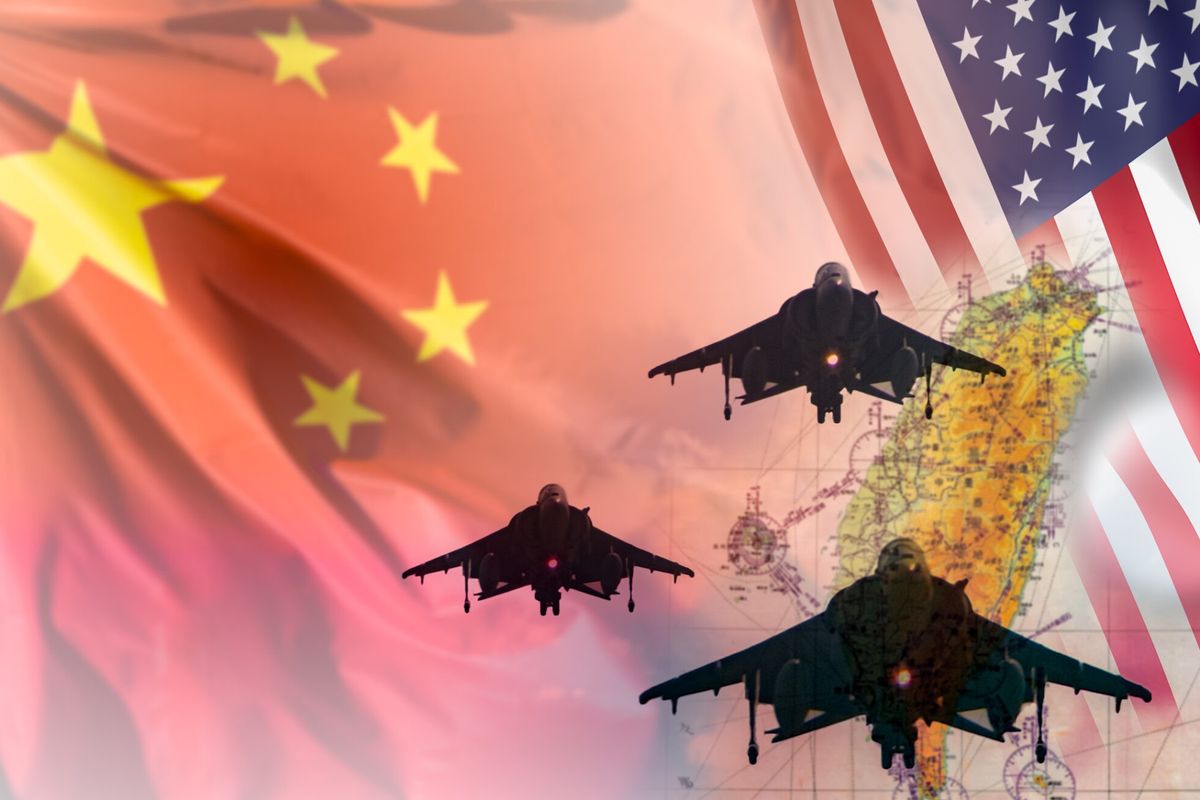The United States has been the standard-bearer for free trade, multilateralism, and globalization since the end of World War II. However, as the Trump administration seems to back away from that historic role, new powers like China are rushing – at least rhetorically – to take advantage of the strategic and economic vacuum that a more isolationist America might leave behind. Some fear that Washington’s apparent retreat from free trade and global leadership may provoke an international strategic realignment, a convergence of interests between the world’s remaining proponents of free trade, multilateralism, and globalization. The Cipher Brief’s Fritz Lodge spoke with Parag Khanna, author of the best-selling book Connectography, about whether such a realignment is taking place and what it could mean for the United States and the world economy.
The Cipher Brief: With what appears to be a more economically protectionist and diplomatically isolationist U.S. president in the White House, as well as the disruption caused by Britain’s impending exit from the European Union, do you see an opposite reaction from countries and leaders that continue to espouse globalist ideals? Is this leading to economic or strategic realignment?
Parag Khanna: I think the countries that have mutual interests want to continue uninterrupted by this new western volatility and new western trade policies. They want to move forward.
For example, the Trans-Pacific Partnership (TPP) countries – minus the U.S. and plus China – just got together in Vina Del Mar, Chile. That was a good example of one American misconception that the TPP – and global free trade at large – would die without U.S. support. The TPP seems to be carrying on. They may find a new name for it, but the bottom line is that China is now tentatively throwing its hat in the ring into an agreement that the U.S. crafted partially in order to isolate China. So you have this irony of ironies here.
But it would be simple-minded to fall into the trap of thinking that all of this is about trade. Today, it’s all about investment. In the grand scheme of things, there is not much farther to go in terms of liberalizing global trade. What we’re fighting about right now are relatively small things, like removing some sectoral industry protections, some non-tariff barriers, some subsides, etc. But the flow of capital, the flow of investment is staggering. Trade growth is now based on investment growth.
Because I don’t see a slowdown in investment flows around the world, I don’t really expect a slowdown in trade. To the untrained eye, it’s all about some big, grand free trade agreement, but this is not it at all. The real questions are whether capital is mobile, and whether foreign investment spreads to more and more countries. If you have these, then you inevitably create trade growth.
Based on what’s happening today, there’s no real reason to worry about whether there will be some kind of ‘in-group out-group’ split between free trade vs. protectionist countries, or open vs, closed countries. In the real world, we have gone from talking about all-out trade wars to talking about the U.S. wanting to incrementally reduce bilateral trade deficits. To me, that doesn’t sound like a trade war. To me, that’s no big deal, and it’s a perfectly legitimate effort to pursue. This is something about which reasonable people can have differing views and argue about.
That’s where we’re at today, and this is something I could have told you a year ago. When you look at the underlying mutual interests between countries, at the end of the day, labor costs in Asia don’t change just because Trump was elected in America. And American companies always make their decision based on wages and market access.
TCB: Traditional international institutions like the World Bank and the United Nations have provided a major conduit for international investment and a tool for U.S. foreign policy, but the Trump administration appears to be considering deep cuts in U.S. contributions to some of these organizations. At the same time, new institutions like the China-led Asian Infrastructure Investment Bank (AIIB) are flush with cash. Do you see the possibility of a redirection, if not a slowdown, in international trade and investment flows?
PK: The simple fact of the AIIB is that the growth in trans-Eurasian trade – trade between Europe and China, India, South Korea, Australia, ASEAN, etc. – adds up to more than trans-Atlantic trade. With the One Belt One Road [a Chinese-led Eurasian investment fund] and AIIB, trans-Eurasian trade and investment volumes are going to skyrocket. It will become $2 trillion, $2.5 trillion, and so on, and it will be way bigger than anything Europe has going with America.
The idea that the weakening of U.S. commitment to the TTIP [Trans-Atlantic Trade and Investment Partnership], for example, offers some sign of a global pattern is completely false. The global pattern is a massive expansion of inter-regional trade and investment flows across major markets. Europe and Asia are two very robust regions; they are two regions with an aggregated GDP larger than the U.S. We always overstate our own influence on the global stage.
Let’s also bear in mind that Trump reducing commitments to international programs or institutions – the World Food Program (WFP), for example – is not exactly comparable to the AIIB, which is going to invest trillions of dollars over the next decade. These are not likeminded entities, they’re not even in the same universe. I think the WFP does very important work, but my point is that multilateralism itself is not going anywhere.
The question is, which multilateralism is expanding and which is receding? Infrastructure-focused multilateral organizations like the New Development Bank [formerly “BRICS Bank”], the Silk Road Bank, and the AIIB are expanding, while traditional multilateral organizations are withering. They are withering for a number of reasons, including a lack of U.S. support, corruption, lack of modernization (at the UN, for instance), and a lot of other stuff that frankly predates President Trump.
Multilateralism is always a competitive arena. There isn’t one multilateralism that’s defined as western post-World War II institutions, and everything else is somehow subversive. Multilateralism is neutral. It operates in a competitive marketplace, and some multilaterals are doing fantastically well at the moment. We’ve never seen an organization that’s gone from zero to 80 members in a couple of years the way that the AIIB has. So if you look at multilateralism in the neutral way that you should, this is a golden age.
TCB: If that practical truth won’t change, is there nevertheless a chance that the perception of a slowdown or of American retreat from globalization, will produce a realignment in the way that countries view their economic and strategic relationships with each other and the United States?
PK: Yes, without a doubt. Ten years ago, I wrote my first book about this phenomenon, which I call “multi-alignment.” The idea that even if the U.S. is a strong ally, countries will still try to diversify their strategic relationships in order to make sure that they’re gaining maximum benefits from the U.S., China, and other world powers at the same time. Why have a Cold War “either or” mentality when you can have a “both and” mentality?
That multi-alignment principle stands the test of time. I believe that alliances, quite fundamentally, are just psychological veneers. They are a form of group therapy. The test of an alliance is not whether Portugal subscribes to Article 5 of NATO, it’s whether Turkey lets you use their bases. At the end of the day, alignments and alliances are really just a comforting blanket. In reality, it’s purely situational as to whether countries will sign up to certain programs or operations when they’re called upon to do so.
Opportunism is a better word for what’s going on right now than any kind of realignment of alliance structures.












